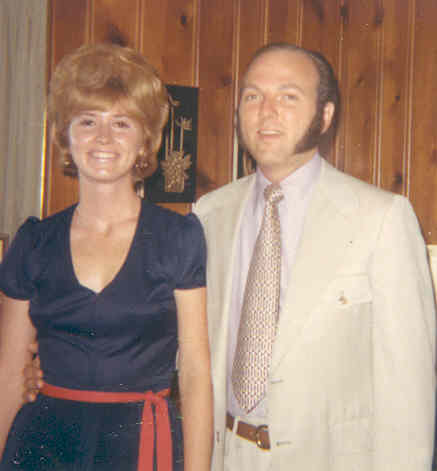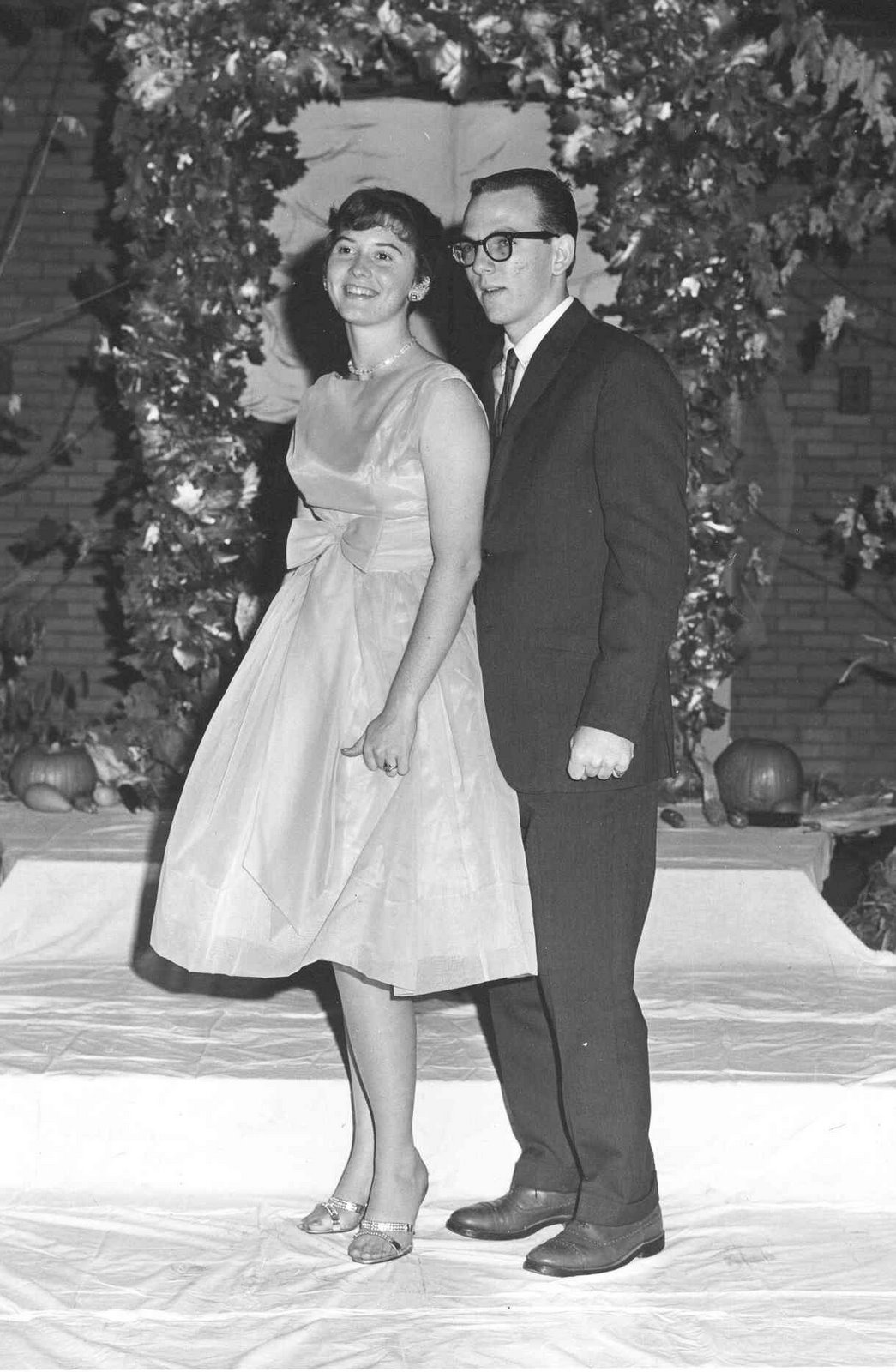
This was a surprise book signing party I knew nothing about. I thought I was attending a builder’s open house with Judy at ProSource (a specialty, full service wholesale carpet and flooring company that deals directly with builders, designers, architects and the like). What a shock!!! I sold 52 books there and a bunch more were sitting on my computer when I got in my office this afternoon. Those were from people who could not attend, but they did not want to blow the cover of the surprise by ordering before today. I must admit last night was great fun! Our great friends pulled this off without a hitch. I will be doing formal ones soon and the neat thing about that is the sign made for the event is generic so I have a great marketing prop now! Thank you so much to all who planned, attended and bought books! What a blast!
Stay tuned for my next "official" book signing!
Read more!
Thursday, April 2, 2009
Stan's First Book Signing!
Sunday, March 15, 2009
Devious Behavior
Statement of Purpose: Psychologists use a lot of downright awful words to describe the word devious. Deceitful, tricky, dishonest, manipulative, fraudulent, scheming, harmful, underhanded, and conniving, just to name a few. Business consultants like me see it manifested in the form of Aggression and Passive Aggression in the workforce. It can be between a boss and their employee, it can be between peers, it can be between an employee or business owner and a client (and when you get out into the social world, the possibilities are endless). Bottom line, Devious and Deceitful Behavior is one of the major problems in this world today and it is a gigantic killer in productivity and quality communications, regardless of the circumstances (i.e. business, marriages, social encounters, national and international interaction, etc. etc.).
Many famous people have weighed in on the subject so rather than give you quotes from all of them or even a sampling of them, let me summarize in a few points, how this behavior looks under a microscope when examined further and then brought out into the light of day and exposed. (1) Devious Behavior is when a person acts one way in front of their spouse, pastor, employees, friends, boss and so forth (almost always putting on their best front), and then acts another, more unattractive way when that person(s) is not around to see this/their destructive behavior. (2) Devious Behavior is when a person, for one reason or another, changes the way they normally operate or they change their personality to either adjust to the situation at hand and/or manipulate others around them to their desired outcome. (3) Devious Behavior is when a person operates in the highly destructive Aggressive Mode and Passive Aggressive Mode interchangeably and profoundly, while almost totally (or completely) abandoning the Assertive Behavior Mode (i.e. the correct mode that deals with issues and never attacks a person). (4) Devious Behavior is when a person justifies to themselves that the ends justifies the means, regardless of the means they are utilizing, to accomplish what they think is right or needs to be done.
There are more explanations but that is the key four and they are quite damming if in fact someone is definitely operating this way. How do you deal with someone you suspect or definitely know is operating in this destructive behavior behind the scenes and/or right out in the open? You confront it assertively, with specific examples (not general ones) and let them know you will no longer tolerate that kind of behavior, period. If they go into denial and/or give you excuses and/or they will not admit they are operating in a Devious way, and you are convinced you have solid evidence to prove it is happening, you need to go back over the specific behavior verified once more and interact with that person until they admit they have been operating in this destructive mode.
Rarely have I found that people operate this way unintentionally, but it can happen under certain circumstances or great pressure. Virtually all of the time I have encountered Devious Behavior, it is intentional and it must be corrected as soon as it is verified, regardless of the party you are dealing with at the time. If you do not have direct authority and/or influence with that person(s), and they refuse to change their destructive behavior, then for your wellbeing, you must plan to distance yourself from them.
Read more!
Wednesday, March 4, 2009
Opinion vs. Opionated
Statement of Purpose: For much of my life, I was a very opinionated person to the point sometimes of being obnoxious and arrogant. It was hard to reason with me if you had another point of view or opinion. Then one day I was at a seminar at a national convention when a motivational speaker zeroed in on these two words and how one of them can bring you lots of grief. He first defined having an opinion as… “Being healthy, having a point of view that is yours, it is your belief, it is your judgment about something you have seen, heard or read, and it can be an estimation, your attitude on a subject and your outlook on it. It is healthy to have opinions on things, so long as you remain open minded to other person’s points of view, even if you are sure they are wrong.”
However, he went on to tell us that… “On the other hand, being opinionated is not healthy and it can be very damaging to many aspects of our lives and our relationships. For instance, being opinionated means we are prejudiced, superior in nature, dogmatic, rigid, inflexible, unbending, fixed and intolerant on an opinion others might have, just for starters. We will therefore be narrow minded, very outspoken and even vehement on a subject. And we almost always state our opinions as THE ONLY CORRECT information on a subject, while expecting others to immediately see the light and accept our opinion unequivocally.”
His advice was to wake up and realize this is not only a big communications killer with people you associate with, it is a big turn off too. Normal people just do not like “know it alls” and while they may deal with them out of necessity, they distain this kind of behavior. He added, this does not say such a person is not knowledgeable or intelligent on a subject. What it does say is that they can become so opinionated, it fogs and diminishes the importance of those talents, skills and knowledge to others and many times causes people to seek those talents, skills and knowledge elsewhere.
Ben Franklin had a tremendous amount of talents, skills and knowledge. And yet, he recognized early in his life he needed to be very careful how he handled sharing this wealth when expressing an opinion or an idea he wanted to be accepted by, or at least seriously considered by, other people. Whenever he began an opinion on a subject whereby he was very sure he was correct, instead of cramming it down people’s throats, he would hear out what others had to say first and then state…. “You know, I could be wrong on this. However, what I believe and have found to be true on this subject is that……… (and then he would state his opinion and wait for a response)……”
There is a basic truism I teach in my sales and in my negotiating seminars that goes like this…. “You do not want to win the arguments all the time, or even most of the time, or you will lose the sale. In fact, I recommend you do not argue with your customers and clients at all. In addition, avoid being a ‘know it all’ when working with a customer or client. Educate them fairly and yet, hear them out because they have opinions too and today, they may have done so much research on the subject, available to them on the Internet, that they know more about it now than you do.”
Read more!
Tuesday, January 20, 2009
Selecting the Right People To Be On Your Bus
Jim Collins, in his continued best selling business book called “Good to Great”, did not invent the concept of calling your business or organization a “Bus” and using it as a metaphor in regards to obtaining and retaining the right people on your bus, while removing those that did not fit. However, he took this metaphor and made it a critical success factor in his describing how a company grows from a good one to a great one. In essence, he boils it down to the following summary.
There were eleven study companies that “made the cut” in his book that he and his research team examined from top to bottom and compared to comparable companies. The comparison companies were not even close to making the cut, but they were well known in the specific industries and marketplaces represented by the eleven companies studied, who did “make the cut”. These eleven companies all had at least three key critical success factors in common. (1) Once a new leader moved into the role of being totally in charge, they set specific guidelines of what kind of employees they wanted on their team. (2) Next, they made sure they started hiring from that day forward, only those people who fit that “winners profile”, regardless of what position they were to fill in the company, and they made sure the practice was adhered to explicitly, corporate wide, with absolutely no exceptions. (3) At the same time, they closely examined the existing people “on the bus” and decided to either remove them (because they did not meet the “winners profile” and there was no hope of changing them); Or, because they did meet the “winners profile”, but their talents, skill sets, experience and knowledge were not being fully utilized, they moved them to a different, more suitable seat (or position) on the bus.
Tom Collins stated in his book and in speeches afterwards…. “It has been said that people are your greatest asset in a company or an organization. I am here to tell you that is not true. Great people in the right seat on your bus is your greatest asset.” Can it be that simple? Well, it is his firm belief and mine too that until a company exercises this best business practice, consistently and congruently, day after day, it can never grow from a “Good to a Great” company, regardless of all the other excellent processes that are incorporated into the organization along the way.
Winners Profile Basics: They must have a great attitude or nothing else listed below matters. They must be a happy person and demonstrate that with a great smile as often as possible. They must be a “we” person who wants the team to win first instead of an “I” person who needs to win first and look good. They must be able to be “up” even when they do not feel like it. They must be reliable, loyal, honest and trustworthy. They must be consistent and congruent in their work behavior instead of varying all over the place. They must have a servant’s heart when needed, and yet be able to take command and give direction when the chips are down and the heat is on. They must respect their fellow employees, the customers and vendors and if they cannot, something must change immediately. They need to be able to give input freely, and yet, when the final decision is made, if it is not to their liking, they will still support the decision without question. They must be decisive. They will deal with things assertively (focus on the issue, not the person) and never be passive, aggressive, or passive aggressive in dealing with others and situations.
Read more!



















